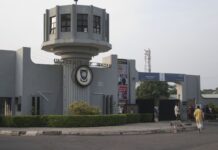Ime Akpan
The former minister of minister of works, power and housing, Mr. Babatunde Fashola has said that paucity of funds is the major obstacle to the federal government’s inability to deliver projects.
He stated this yesterday during his screening by the senate as a ministerial nominee.
“The common problem was funding but there have not been enough resources. Our resources are not enough to fund our stated expenditures and we have to borrow and there is a school of thought that has been saying we are over-borrowing,” he said.
Fashola suggested alternative financing to mitigate the funding challenge.
He suggested alternatives such as SUKUK which he said could provide over N100bn to fund road projects across the six geopolitical zones.
He also sought for the establishment of Sovereign Infrastructure Development Fund.
“I think there is some opportunity and I made this presentation during the last 2019 budget presentation that one of the ways I think is to expand instruments like SUKUK.
“Maybe it won’t be SUKUK this time but I think Nigeria can seek to leverage from the large pool of fund with the ordinary people looking for secured investment.
“And some of them are not even in the banking sector keeping their cash. And I propose that we should consider something like a N10 trillion infrastructure bond backed by parliamentary support and secured by the Federal Government with a reasonable coupon issued in tranches each year, as we need to fund infrastructure.
“In my view, if we don’t try this, we wouldn’t know whether it has worked. But I am convinced that we can do something along this line based on the interest that I saw in the Sukuk in the 100bn Sukuk, for example, there were about 286 investors and the instrument was oversubscribed, which meant that there was an appetite for it.”
Besides, he suggested a consensus on project holiday, which would allow the government to concentrate on completion of outstanding projects rather than embarking on fresh ones.
“We need to have a consensus on break on projects, let us prioritise projects. Let us pick projects and deliver. We can’t do all the work in four years. The time of a nation is more than four years. Nigeria isn’t yet a rich nation that I think it should be. There is a gap between our needs and financing.”
On power, said there was no institutional encumbrance on state governors from embarking on independent power projects, submitting that the Nigerian Constitution offered them the window to embark on such ventures.
“The Constitution allows states to generate their own power, transmit and distribute to places not reached by the national grid. The Constitution makes that clear,” he said.





















































